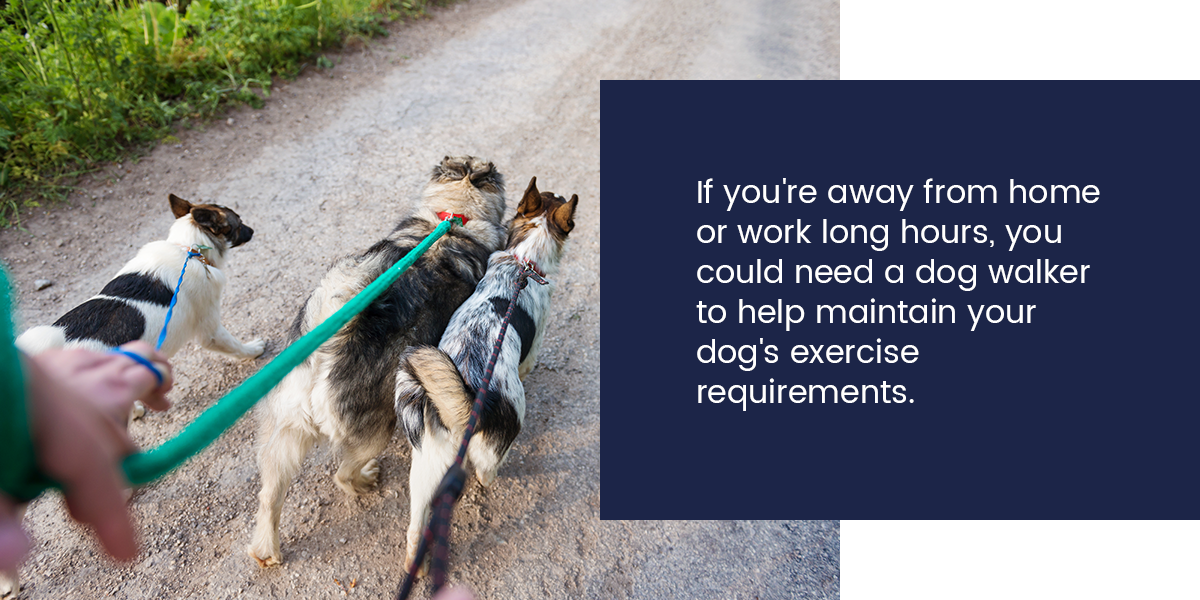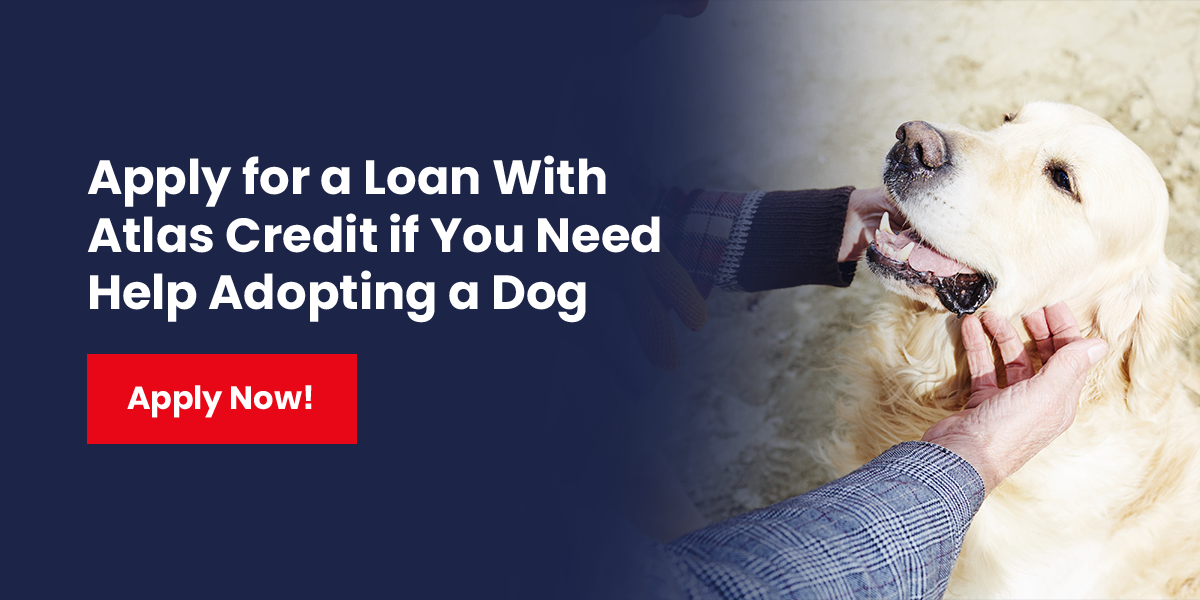
Owning a dog has many physical and psychological benefits. They can change your life — many people who have dogs can't imagine living without one. Some of us never thought we would want one until a single chance encounter. Having a dog in your life could be one of the best decisions you ever make, as long as you consider your finances.
Many people underestimate how much it will cost to keep and care for a dog. If you aren't careful, the expenses can build up to the point you may not be able to provide for your new best friend. Getting a dog is a massive responsibility, so before you bring a dog home, you should know what you're in for and whether you can cover the pet care expenses.
How Much Does It Cost to Own a Dog?
When you get a dog, you want to consider the expenses you'll incur for their lifetime, from the initial purchase or adoption costs and vet bills to food, training, and toys. Every dog is different, so knowing how much your new best friend will cost you can be challenging.
On average, the total lifetime cost of owning a dog ranges from $27,000 to $42,500 per dog. These costs don't include toys, special treats, or emergency vet expenses. Although you don't spend this money all at once but throughout your dog's life, knowing what kind of money you can expect to pay is vital to successful dog ownership. Some of the significant expenses to think about include the following:
Purchase or Adoption Costs
Buying or adopting a dog is the most significant upfront expense. Breeders and rescue centers have different prices for purchase and adoption. Consider your budget and whether you're looking to adopt and give a dog a second chance or have your heart set on a specific breed and would like to purchase one.
Purebred dogs from reputable breeders are the most expensive option. Depending on the breed — some are pricier than others — you could spend several thousand dollars for a rare or popular breed. Other dog breeds could cost between $800 and $1,500. Adopting a dog from your local shelter is a more cost-effective option, as adoption fees are usually a few hundred dollars or less.
Before you bring your new pup home, you'll likely need to get a dog license, at between $10 and $30. Depending on your location, your local bylaws could also require your dog to have a microchip.
Medical Costs
The first year you have your dog will likely be the most expensive. Although most breeders and rescue centers include the first set of vaccinations in their fees, your puppy will need vaccinations more than once in the first year. Many people spay or neuter their dogs to prevent unwanted breeding and health complications. Spaying or neutering can also save you boarding and license fees in the future, as intact dogs are often more expensive.
You may have to cover emergency veterinary expenses throughout your dog's life. The most cost-effective way to ensure your dog can get the care they need is to look into pet insurance and pick the coverage best suited to your requirements and budget. Consult your veterinarian about the health problems your dog could be prone to based on their breed, and try to tailor your emergency coverage accordingly.
Cost of Initial Supplies
Getting a dog is a little like having a baby. You'll need to get them their bed, bowls, food, and clothing — or collar and lead. Although the prices of these items vary, and you might be able to find excellent deals, the following list will give you some indication of the costs:
- Food and water bowls: $10 to $50
- Collar and lead: $6 to $50
- Bed or crate: $25 to $300
- Dog brushes and shampoo: $5 to $10
- Training pads: $15 to $35
- Toys: $10 to $200
Training Costs
Any experienced dog owner knows that while training may be relatively expensive, it will save you money in replacing shoes, carpets, and furniture.
Some dogs only require training in their formative years. Basic obedience might be enough for you, but remember, dogs enjoy training. Some breeds will become destructive without that mental stimulation. Add between $25 and $300 for training every year.
Optional Expenses
You might incur additional dog ownership expenses, depending on your lifestyle. If you're away from home or work long hours, you could need a dog walker to help maintain your dog's exercise requirements. If you travel for work, factor in boarding or pet-sitting costs.

Tips and Tricks to Reduce Pet Care Expenses
If you have your heart set on bringing a four-legged friend into your home but worry about your budget, all is not lost. There are ways to cut costs and still enjoy the benefits of pet ownership. Take a look at the following tips and tricks:
- Adopt, don't shop: Adopting a dog has many benefits for you and the dog. Shelters have incredible dogs of all ages, breeds, and sizes. You don't have to pay hefty fees to breeders for the joy of having a dog in your home. Consider an older dog as well, as you can save on training and give them a second chance.
- Compare dog food brands: Not all dog foods are made equal. Many dog food brands on the market meet your dog's nutritional requirements. Research locally produced options, and you might find high-quality food at a reasonable price.
- Connect with other dog lovers: Connecting with your local dog-loving community can help you save on boarding and walking costs. You can take turns looking after and walking each other's dogs at no charge.
- Keep your dog healthy: Overweight dogs are prone to severe and expensive health problems. Walking is free and goes a long way to keeping your dog at their optimal weight. Stick to dog-friendly foods for treats, and prioritize their health whenever you can.
- Get pet insurance: Insurance might seem unnecessary until you need it. In a severe veterinary emergency, most vets require a sizeable upfront deposit before starting treatment, which could drain your finances. Pet insurance will ensure your dog can get the treatment they need without breaking the bank.
So, Can You Afford a Dog?
A dog is a long-term commitment, and it's worth it if you can manage your finances. You can look after your dog properly if you follow the tips and tricks above, research, and save money for emergencies. Include monthly medical, food, and training costs in your budget, and keep your eyes open for good deals and local pet providers.
Apply for a Loan With Atlas Credit if You Need Help Adopting a Dog
Sometimes, having a dog in your home is non-negotiable, but coming up with the adoption fee and initial costs takes time and effort. With Atlas Credit, you can have the dog of your dreams in no time with an affordable loan. The application is easy and quick, and you'll have a comfortable time frame to pay back your loan and be able to afford the monthly expenses of having a new furry friend running around.
If you've found a dog you'd like to bring home, apply for a loan online today, or visit one of our convenient in-person locations and make your dream of becoming a dog owner a reality.



